Are the Dems Losing Their Way?
Two questions from Sunday's Democratic debate: Does Joe Biden have to set himself on fire to get serious attention? And whatever happened to the lunch bucket issues that once made Democrats the dominant political party in America?GOFFSTOWN, N.H. — Two questions from Sunday’s Democratic debate: Does Joe Biden have to set himself on fire to get serious attention? And whatever happened to the lunch bucket issues that once made Democrats the dominant political party in America?
Maybe because he doesn’t have much to lose, Biden was the most passionate, straight-talking figure on the stage here at Saint Anselm College. But so much coverage was lavished on John Edwards, Hillary Clinton and Barack Obama and their scuffling over Iraq and healthcare that you might have missed this. So consider, first, Biden’s comments on Darfur:
“I went there. I sat on the borders. I went in those camps. They’re going to have thousands and thousands and thousands of people die. We’ve got to stop talking and act. … By the time all these guys talk, 50,000 more people are going to be dead! They’re going to be dead!”
Or take Biden on gays in the military. The debate moderator, CNN’s Wolf Blitzer, noted that Gen. Peter Pace, the chairman of the Joint Chiefs of Staff, said it would be a mistake to end the current “don’t ask, don’t tell” policy.
“Peter Pace is flat wrong. I’ve been to Afghanistan, I’ve been to Iraq seven times, I’ve been in the Balkans, I’ve been in these foxholes with these kids, literally in bunkers with them. Let me tell you something, nobody asked anybody else whether they’re gay in … those foxholes.”
Noting that “the British, the French, all our major allies” allow gays to serve openly, Biden added: “I don’t know the last time an American soldier said to a backup from a Brit, ‘Hey, by the way, let me check. Are you gay? Are you straight?’ This is ridiculous.”
And agree or disagree with Biden’s recent vote to fund the Iraq war, it was good to hear him say that “some things are worth losing elections over” and defend his decision without hedges or equivocations.
But Biden is not a front-runner. By any conventional definition, the “news” of the debate revolved around Edwards challenging Clinton and Obama for showing insufficient “leadership” in the cause of ending the war. Obama struck back hard at Edwards’ original support for the Iraq venture. “You are about four and a half years late on leadership on this issue,” said an unusually steely Obama.
Clinton hung in with ease by minimizing the differences among Democrats on the war. Given her current lead, Clinton wins these encounters by not losing. Edwards was especially tough on healthcare — he always wins points by saying, unapologetically, that universal health coverage will require tax increases. Obama looked increasingly comfortable as the debate went on and won deserved applause for saying that a question about whether English should be our official language was a distraction, which it is.
But this encounter would have profited from questions posed by the old-fashioned kind of Democrat — union workers who have faced cuts in pay and benefits, parents who can’t afford to send their children to college or who work two or three jobs and can’t get proper child care.
This is not a knock on the thoughtful participants whom CNN picked to ask questions. A student named Tim O’Connor asked a good one about compulsory national service and a self-employed man named Brian Sealander zeroed in on a key word in Democratic rhetoric by asking how the candidates defined who is “rich.”
But the fact that so much of the debate concentrated on international relations reflects the imposition of a false high-mindedness that sees presidential-level discussions as serious only if they focus primarily on foreign policy. This throws off the balance in our politics. Many voters who want to hear a practical thing or two about schools, jobs, housing or how to cover their retirement respond to staged political events with a shrug and a frown.
Yes, there was a vigorous discussion Sunday on the merits of competing healthcare plans — yet another sign that this campaign may finally put universal coverage on the road to enactment. And Monday night’s Clinton-Obama-Edwards debate sponsored by the progressive Christian magazine Sojourners was organized in large part around the theme of social justice.
But the fading of bread-and-butter politics can only mean a growing disenchantment among voters — think of them as the Next New Dealers — who need to be part of this generation’s age of reform.
We need to hear more from such voters. And, please, can’t we give Joe Biden at least his 15 minutes of respect?
E.J. Dionne’s e-mail address is postchat(at symbol)aol.com.
© 2007, Washington Post Writers Group
Your support matters…Independent journalism is under threat and overshadowed by heavily funded mainstream media.
You can help level the playing field. Become a member.
Your tax-deductible contribution keeps us digging beneath the headlines to give you thought-provoking, investigative reporting and analysis that unearths what's really happening- without compromise.
Give today to support our courageous, independent journalists.
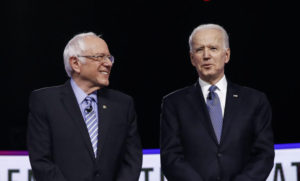
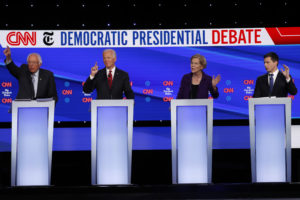
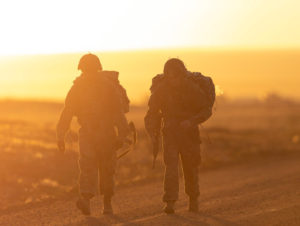
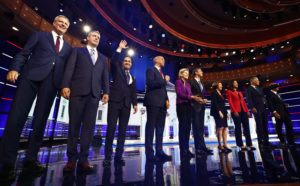
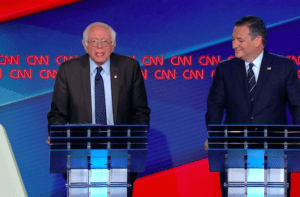
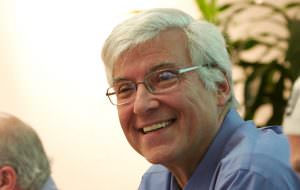
You need to be a supporter to comment.
There are currently no responses to this article.
Be the first to respond.